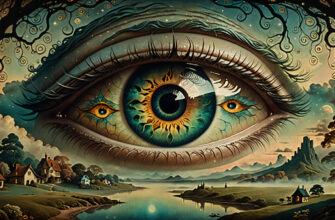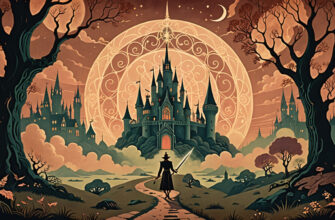Ever woken up with the image of a book still clinging to your mind, like it had something urgent to say? You’re not alone. Book dreams hit differently. They’re not just background props; they hold weight. A lost book can feel like a breakup. An erotic one? Like someone cracked open your private diary. And trying to finish a never-ending novel in your dream? That’s exhaustion wearing a plotline.
These aren’t just dreams. They’re emotional codes. Your mind uses pages, words, and chapters to tuck away things you’re not quite ready to say out loud. Regrets, fantasies, unfinished business—they all show up in paperback form while you’re off in REM. And when people wake from them, it’s like walking away from a mirror that just blinked first. They Google that dream not out of curiosity, but desperation—something inside them just got called out.
Book dreams don’t whisper. They underline in red ink, dog-ear the corners, and slam themselves shut mid-sentence. Let’s break the spine open and see what’s really inside.
- Top Book Dream Scenarios And What They’re Trying To Tell You
- Losing A Book You Love
- Writing A Book That Never Ends
- Reading An Erotic Or Scandalous Book
- Books In Flames, Underwater, Or Locked Away
- The Symbolism Of The Dream-Book As “Unspeakable Truth”
- Reading Yourself in the Pages: Psychological Layers of Book Dreams
- The Colleen Hoover Connection: Real-Life Parallels in Symbol and Emotion
- How to Work With Book Dreams Instead of Shrugging Them Off
Top Book Dream Scenarios And What They’re Trying To Tell You
Some book dreams feel like puzzles. Others, like warnings. Here’s a breakdown of some of the most vivid scenarios and what themes they may be dragging to the surface.
Losing A Book You Love
Dreaming you’ve lost a beloved book usually isn’t about the book. It’s about the vanished parts of ourselves—an identity we shelved, a potential we ghosted. It may reflect deep regret or the gnaw of something left unsaid. Often, it brings up the kind of anxiety that feels like someone took scissors to your timeline—and snipped out the chapter where everything could’ve gone right.
Just like in Colleen Hoover’s stories, particularly where characters bury their truths to preserve peace, this dream mirrors that tension. Suppressed family history, choices no one spoke of again—it all echoes here. The book may represent what you’ve kept silent about for too long.
Writing A Book That Never Ends
If you’re trapped in a dream, furiously writing a book that refuses to finish, it’s more than insomnia playing tricks. It indicates being stuck in a loop—hyper-focused on perfection, petrified of moving forward. You may be writing and rewriting scenarios in your mind, hoping to finally get it right.
Hoover’s characters often stall this way too—caught in flashback loops, torn between healing and hiding. These dreams tap into trauma avoidance. There’s something in your real life you won’t close the chapter on, so your brain just keeps on drafting.
Reading An Erotic Or Scandalous Book
Reading something steamy or taboo in dreamworld often isn’t just about desire—it’s about restriction. These dreams bring up shame, repressed sexuality, and the need to reclaim pleasure without guilt. Sometimes, the mortifying idea of being caught reading it is louder than the content itself. That’s the mind’s way of highlighting vulnerability and deep-seated fear of judgment.
Colleen Hoover’s open-door approach to messy intimacy—especially relationships formed within chaos—mirrors this perfectly. These dreams bridge our shadow-side cravings with the ache to be truly seen, flaws and fantasies included.
Books In Flames, Underwater, Or Locked Away
When books burn, sink underwater, or get shoved behind locks in your dream, the message cuts straight to the core. Something vital has been buried. Maybe it’s grief over a secret lost with a loved one or ancestral pain that was never acknowledged. Books in peril signal that history—the personal or inherited kind—is crying out to be reclaimed.
Take this straight from the emotional blueprints Hoover sketches across her novels. Generational silences—families who never talk about the hard stuff, trauma skimmed over in favor of polite smiles—all get echoed in these dream signals. The story’s still there, even if no one’s reading it out loud.
The Symbolism Of The Dream-Book As “Unspeakable Truth”
There’s something about books in dreams that go beyond nostalgia or shame. They become confessional spaces—places where the deepest parts of you try to speak freely, without interruption.
If you’re dreaming of flipping through pages only you can see, chances are your mind is airing out the stuff you won’t. These books become your private journal, a container for secrets too raw to admit with the lights on.
Sometimes the words in the book feel disguised. They might be poetic or dreamy, masking resentment, rage, or sorrow in soft, romantic tones. That’s your inner editor at work, trying to pretty up the pain. Hoover’s books do this too—rage stitched into love declarations, irony hiding heartbreak.
Ever dream of reading a book in a language you can’t understand? That’s your refusal to name the thing. Your subconscious is handing you the truth wrapped in metaphor—that way, you might actually read it.
These vivid dream-books often surface after therapy, blowouts with family, or run-ins with people who know your old wounds. It’s your brain giving you a plot twist: time to heal the parts you keep trying to skip over.
Reading Yourself in the Pages: Psychological Layers of Book Dreams
What if the book in your dream isn’t about the story—it is the story? And you’re the one writing it, reading it, hiding in it. Dreams about books aren’t just random; they’re emotional footprints. They’re the pages your brain flips to when you’re not looking.
Some of the wildest book dreams are inner monologues disguised as fiction. You may find yourself holding a book that never ends—or worse, one that’s blank. That might be your mind’s way of screaming, “There’s more to say.” When you dream of a story that keeps shifting, that’s a chapter of you still figuring itself out. One dream might feel like a thriller, the next like a journal entry soaked in regret. That’s not just plot… that’s you talking to you.
Ever had a twist in a dream that felt like betrayal or sabotage? Yep, that’s subconscious sabotage manifesting in plot form. Maybe you keep rewriting history, or your dream-self rips pages out just before the ending. That’s your nervous system warning you—something’s not being owned.
And then there’s the moment when the book seems to “know” you. Like you’re reading a page that outs your secrets. Feeling seen in a dream can be just as unnerving as feeling stripped down. That’s when the book in the dream turns on you—becomes a mirror. Or a sniper. Depending on what you’ve buried.
For folks who carry trauma (which is… most people), book dreams can feel like survival maps. Each word becomes a breadcrumb, each image a bit of muscle memory recreated through symbols. These books aren’t just dreams—they’re archives.
And because facing feelings bluntly can be too much, your brain goes full-mythology. Shame shows up as a fire-damaged book. Grief as a locked one. Emotional literacy in dreams doesn’t look like clarity; it looks like metaphor, metaphor, metaphor. Your psyche writes stories when your mouth can’t speak pain.
The Colleen Hoover Connection: Real-Life Parallels in Symbol and Emotion
If any author feels like she crawled out of someone’s subconscious, it’s Colleen Hoover. Her stories hit the same pain points as dream-books: trauma, silence, secrets you think you’ve buried but always end up reading again.
In Hoover novels, characters often write their truth in secret—through letters, journals, unfinished manuscripts. Sounds a lot like dream-books, right? The way those internal voices show up uninvited. Hoover’s recurring emotional DNA—heartbreak stitched to survival—is the same stuff found in dreams that hold both despair and grit in the same spine.
Her characters blur the line between “me” and “what happened to me.” Just like in dream-world, where people are fractured versions of your hopes, past choices, and worst fears. Think of Verity, where the journal twists truth into obsession, or It Ends With Us, where letters hold what can’t be said aloud. When dream-books pop up, they echo that energy: unspoken things begging to exit stage left.
How to Work With Book Dreams Instead of Shrugging Them Off
- Don’t ignore the title—even if there isn’t one. Write down the vibe. Was it a romance? A manual? A horror story?
- Ask who else was there. Was anyone watching you read it? That might be your inner critic. Or your ex. Or your mom.
- Try rituals. Journal the “missing” pages. Rewrite the ending. Burn the dream-book if you need to let it go emotionally (safely, please).
- Dream-books aren’t predictions—they’re check-ins. They’re not telling your future; they’re holding up a mirror to what’s already pulsing inside. There’s no deadline to heal. But there’s always a bookmark where you left off.








